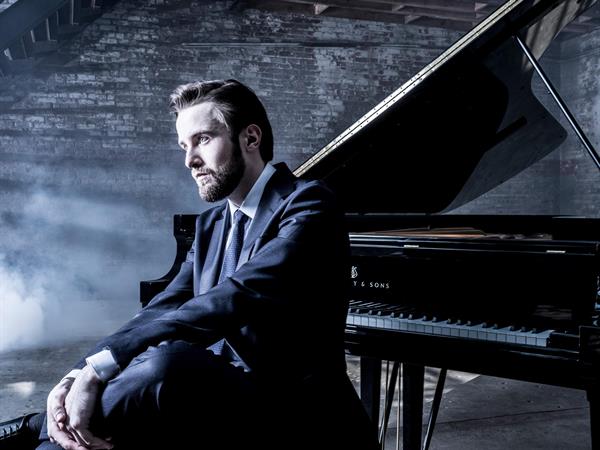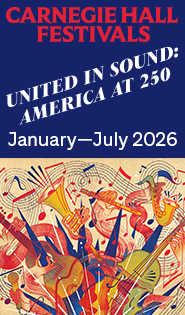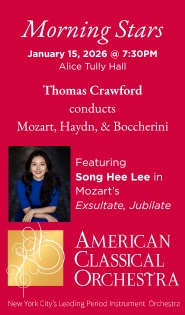Trifonov’s Schumann soars while Gergiev’s Schubert sinks with Met Orchestra

Daniil Trifonov performed Schumann’s Piano Concerto with Valery Gergiev and the Met Orchestra Saturday night at Carnegie Hall. Photo: Dario Acosta
A vigorous and compelling performance of Schumann’s Piano Concerto by soloist Daniil Trifonov was the bright spot in Saturday’s concert by the Met Orchestra at Carnegie Hall.
The program, conducted by Valery Gergiev, included only one other work, Schubert’s Symphony No. 9 in C major, whose “heavenly length” (as Schumann put it) sounded more long than heavenly in Saturday’s decidedly mixed performance.
Pianist Trifonov, who has given some diffident-sounding concerto performances recently, was definitely “on it” Saturday night, starting with a whip-crack flourish in the opening bars, then lunging at the keys, hair flying, to squeeze every ounce of expression out of Schumann’s lyrical phrases and rolling arpeggios.
If the concerto’s spirit is Romantic, its proportions are Classical, and Trifonov respected the latter by playing right in time, with unforced rubato, allowing the charming first movement to unfold in its own way. A little bit of rushing the beat in crescendos was a small price to pay for such an intensely focused performance.
If the first movement didn’t quite satisfy, the responsibility belonged to conductor Gergiev, who, presented with the gift of a lively and engaging soloist at the piano, chose to go his own way instead, tugging back on the tempo and bringing in the lovely wind solos late.
The movement’s glory comes near the end, when everything stops for the long solo cadenza, followed by the exciting Più mosso coda. Trifonov’s rendering of the cadenza was more fiery and impetuous than thoughtful and poetic—this music can sound good either way—and that spirit carried on into a whopper of a finish for pianist and orchestra. The etiquette-mandated silence following that thrilling close was broken by just one audience member, who couldn’t suppress a clearly audible giggle of delight.
Steady tempo was a welcome feature of the brief Intermezzo, holding together the piano’s little staccato phrases and the strings’ lush answers. A surprisingly dispassionate Trifonov began the finale by cranking out the theme and the passagework that followed, but as he continued with the orchestra the hair flew again, the phrases bloomed, and another big finish brought the audience to its feet.
The pianist responded to the ovation with an encore, one of those little Schumann gems of tender expression, the first piece from Bunte Blätter, Op. 99.
Starting a symphony with an unaccompanied horn solo is asking for trouble, but that didn’t stop Schubert and several of his successors from doing so. On Saturday the horn player fumbled for the notes and the tempo to start Schubert’s Ninth, and the rest of the players followed this uncertain call into battle with mixed results.
Conductor Gergiev—leading as is his wont without a baton, or even much of a beat, and standing on the stage floor instead of high up on a podium—produced a sensation of not-quite-togetherness in the orchestra, or at least a squishiness of attack that made one wonder what “together” even meant in this instance.
The conductor seemed more interested in generating a wall of plush orchestra sound than in any of the details of Schubert’s symphonic style: the call and response, the sudden glint of woodwinds, the dark summons of the trombones, the harmonic shift that changes everything. It all went into the orchestral blender, and out came an extra-large Schubert smoothie that left one sated after twenty minutes, with another 35 still to go.
On this night, it was the oft-maligned Schumann who came off as the master orchestrator, and Schubert as overly thick with his scoring, instead of the other way around.
Other than crescendo and diminuendo—the volume knob, essentially—the performance offered little variety, and even less sense of direction. At least a general steadiness of tempo—especially well marked in the Scherzo and of course those four pounding quarter notes in the finale—allowed listeners to perceive the piece’s outlines through the fog.
Ultimately, the audience perceived enough to give Schubert and Gergiev quite a warm response at the end. Still, one wouldn’t have minded if they’d brought back Trifonov for another encore or two.
The Met Orchestra conducted by Yannick Nézet-Séguin will perform works by Debussy, Dutilleux and Ravel 8 p.m. June 3, and works by Mahler and Bruckner 8 p.m. June 14. carnegiehall.org; 212-247-7800.



Posted May 19, 2019 at 1:16 pm by jaura
He may not have used a baton but he DID use a toothpick. I’m not kidding!
Posted May 19, 2019 at 4:23 pm by JNY
This review did not even mention the (over) size of the Met Orchestra. 9 string basses for the Schubert? 12 violas and I couldn’t even count the 1st and 2nd violins. Louis Langré did the symphony with the Mostly Mozart Orchestra and it was a revelation to hear all the inner voices and exciting crescendos – much like Szell and the Cleveland did in this piece almost 50 years ago (still the standard for many).
Posted May 19, 2019 at 7:18 pm by Gail Wein
“It all went into the orchestral blender, and out came an extra-large Schubert smoothie…”
Well said, David Wright!
Posted May 21, 2019 at 10:29 am by Henry English
I wondered whether the orchestra was a bit large for the Schuman? From where I was sitting, Dress Circle, front row, a little left of center, There were moments when it seemed to me the orchestra overwhelmed the piano. I thought Trifonov’s performance of the piece was marvelous.
Unlike the Schumann, I am not familiar enough with the Schubert to comment, other than to say I think the sound of that orchestra is without peer, the various “choirs” sounded like perfection itself.
Posted May 24, 2019 at 10:22 am by Music lover
An inretesting review considering the use of the singular form of the opening horn duet, “ the horn player fumbled” preceded by “unaccompanied horn solo”. The opening was played by two fine horn players.
By all accounts, myself included, the horns played beautifully without a single fumble.
It sounds as though David Wright wasn’t at the same concert.